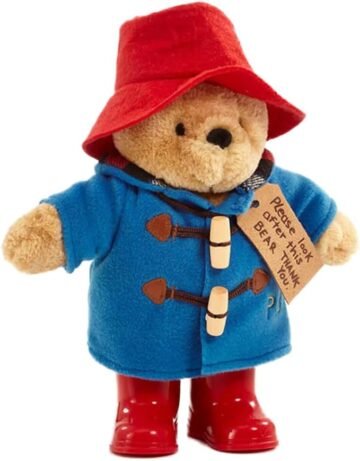As an Amazon Associate I earn from qualifying purchases.
Soft baby dolls are cherished companions for toddlers, providing comfort and a means for developmental play. These dolls, made from soft, safe materials, are ideal for young children. The selection of age-appropriate toys like soft baby dolls can profoundly influence a child’s emotional, social, and cognitive growth, making it essential for parents and caregivers to choose wisely.
Physical Features of Soft Baby Dolls
A. Materials Used
Soft baby dolls are crafted from materials designed to be safe and comforting for toddlers:
- Plush Fabrics: These materials are soft and inviting, making dolls perfect for cuddling. Plush fabrics are often chosen for their durability and gentle texture, ensuring they remain safe and comfortable against a child’s skin.
- Soft Cotton: Often used for the doll’s body or clothing, cotton is breathable and gentle, reducing the risk of irritation. It’s also an easy material to clean, which is beneficial for maintaining hygiene.
- Hypoallergenic Materials: To prevent allergic reactions, many soft dolls are made with hypoallergenic materials, making them suitable for children with sensitive skin or allergies.
B. Size and Weight Suitable for Toddlers
The design of soft baby dolls is tailored to the physical capabilities of toddlers:
- Compact Size: Typically, these dolls are small enough for toddlers to grasp easily, allowing them to carry, cuddle, and play with the doll comfortably.
- Lightweight: A lightweight design ensures that the dolls are not cumbersome for little ones, facilitating easy handling and reducing the risk of dropping and potential injury.
C. Safety Considerations
Safety features are integral to the design of soft baby dolls:
- Embroidered Features: Facial features like eyes and mouths are often embroidered, eliminating small parts that could pose choking hazards.
- Soft Construction: The lack of hard or sharp components makes these dolls safe for play, even for very young children who may chew or throw their toys.
Developmental Benefits
A. Fine Motor Skills Development
Interacting with soft baby dolls can significantly enhance a toddler’s fine motor skills:
- Dressing and Undressing: Activities such as putting on and taking off clothes or accessories help children develop coordination and precision.
- Manipulating Accessories: Handling small items like bottles or pacifiers promotes dexterity and hand-eye coordination.
B. Emotional and Social Development
1. Nurturing and Caring Behaviors
Playing with dolls allows toddlers to explore nurturing roles:
- Imitating Caregiving: Actions like feeding, cradling, and soothing the doll mimic caregiving behaviors observed in adults, fostering an early understanding of care and empathy.
- Attachment and Security: Dolls can become comfort objects, helping children navigate emotions and providing a sense of security.
2. Empathy and Compassion
Through role-playing, children develop empathy and social skills:
- Understanding Emotions: By caring for their dolls, toddlers learn to recognize and respond to emotional cues, both in the dolls and in real-life situations.
- Practicing Social Interactions: Dolls provide a safe space for practicing conversations and interactions, crucial for developing social competence.
C. Language Development Through Imaginative Play
Soft baby dolls are excellent tools for enhancing language skills:
- Dialogue Creation: Toddlers often create conversations for their dolls, practicing new words and phrases.
- Storytelling: Narrating events and scenarios with dolls helps develop narrative skills and encourages creative thinking.
D. Cognitive Skills Enhancement
Cognitive development is also supported through play with soft baby dolls:
- Problem-Solving: Children encounter simple problems to solve, such as figuring out how to dress the doll or comfort it.
- Imagination and Creativity: Engaging in pretend play allows toddlers to explore different scenarios, enhancing their ability to think abstractly and creatively.
Choosing the Right Soft Baby Doll
A. Age Recommendations
It’s important to select dolls that match the child’s developmental stage:
- Simple Designs for Younger Toddlers: For very young children, choose dolls with minimal accessories and simple, easy-to-handle features.
- Complex Features for Older Toddlers: Older toddlers may enjoy dolls with more detailed features and accessories, such as removable clothing or interactive elements.
B. Durability and Washability
Consider practical aspects like durability and ease of cleaning:
- Durable Materials: High-quality fabrics and construction ensure that the doll withstands the rigors of play.
- Machine Washable: Dolls that can be easily cleaned are practical, especially since young children may frequently soil their toys.
C. Diversity in Doll Options
Offering diverse dolls promotes inclusivity and cultural awareness:
- Variety of Ethnicities and Genders: Dolls representing different backgrounds and genders help children learn about and appreciate diversity.
- Diverse Physical Attributes: Including dolls with various physical characteristics, such as different body types and abilities, encourages acceptance and understanding.
D. Additional Features
Some soft baby dolls come with additional features that enhance play:
- Sound Effects: Dolls that make sounds can stimulate auditory senses and provide interactive play experiences.
- Accessories: Items like bottles, clothing, and furniture can expand play possibilities and allow for more complex role-playing scenarios.
Incorporating Soft Baby Dolls in Playtime
A. Structured Activities with Dolls
Structured play can provide learning opportunities:
- Role-Playing Scenarios: Parents can set up scenarios like “feeding time” or “bedtime” to teach routines and social roles.
- Learning Games: Games involving counting, naming body parts, or dressing the doll can be educational.
B. Free Play Ideas
Encouraging free play allows creativity to flourish:
- Open-Ended Scenarios: Allow children to invent their own stories and interactions with the dolls, fostering creativity and independence.
- Exploration: Letting children explore different ways to play with the doll without guidance can lead to new discoveries and learning experiences.
C. Parental Involvement and Guidance
Parents can enhance the play experience by:
- Participating in Play: Joining in with the child’s play can provide opportunities for bonding and model positive behaviors.
- Guiding Learning: Parents can subtly guide play to introduce new concepts and vocabulary.
Potential Concerns and Misconceptions
A. Gender Stereotypes in Doll Play
Addressing stereotypes is important for inclusive play:
- Encouraging All Genders: Dolls are often seen as “girls’ toys,” but they are beneficial for children of all genders. Encouraging boys to play with dolls can help break down gender stereotypes and promote empathy.
B. Balancing Doll Play with Other Activities
Ensuring a well-rounded development requires a balance:
- Variety of Toys: While dolls are beneficial, it’s also important for children to have access to a range of toys that support different types of play and learning, such as building blocks, art supplies, and outdoor equipment.
In Closing
Soft baby dolls offer numerous developmental benefits, from enhancing fine motor skills and language development to fostering empathy and creativity. These versatile toys provide opportunities for both structured and free play, making them an excellent addition to a toddler’s toy collection. By choosing the right doll and incorporating it thoughtfully into playtime, parents can support their child’s growth in a meaningful and enjoyable way.
Summary of Key Features and Benefits
| Feature | Description | Benefit |
|---|---|---|
| Materials | Plush fabrics, soft cotton | Comfortable and safe for toddlers |
| Size and Weight | Small, lightweight | Easy to handle, suitable for toddlers’ physical abilities |
| Safety Features | No small parts, soft construction | Minimizes risks of choking and injury |
| Fine Motor Skills | Dressing dolls, using accessories | Enhances coordination and dexterity |
| Emotional Development | Nurturing behaviors, attachment | Develops empathy, provides comfort |
| Social Development | Role-playing, social interactions | Promotes social skills, understanding of emotions |
| Language Development | Dialogue creation, storytelling | Expands vocabulary, improves narrative skills |
| Cognitive Skills | Problem-solving, imaginative play | Encourages creative thinking, enhances cognitive development |
| Diversity and Inclusivity | Variety of dolls representing different cultures, genders | Promotes understanding and acceptance of diversity |
| Additional Features | Sound effects, accessories | Enhances interactive play, provides varied play experiences |
This markdown document provides an in-depth exploration of the various aspects and benefits of soft baby dolls for toddlers, including detailed descriptions and benefits of each feature.



